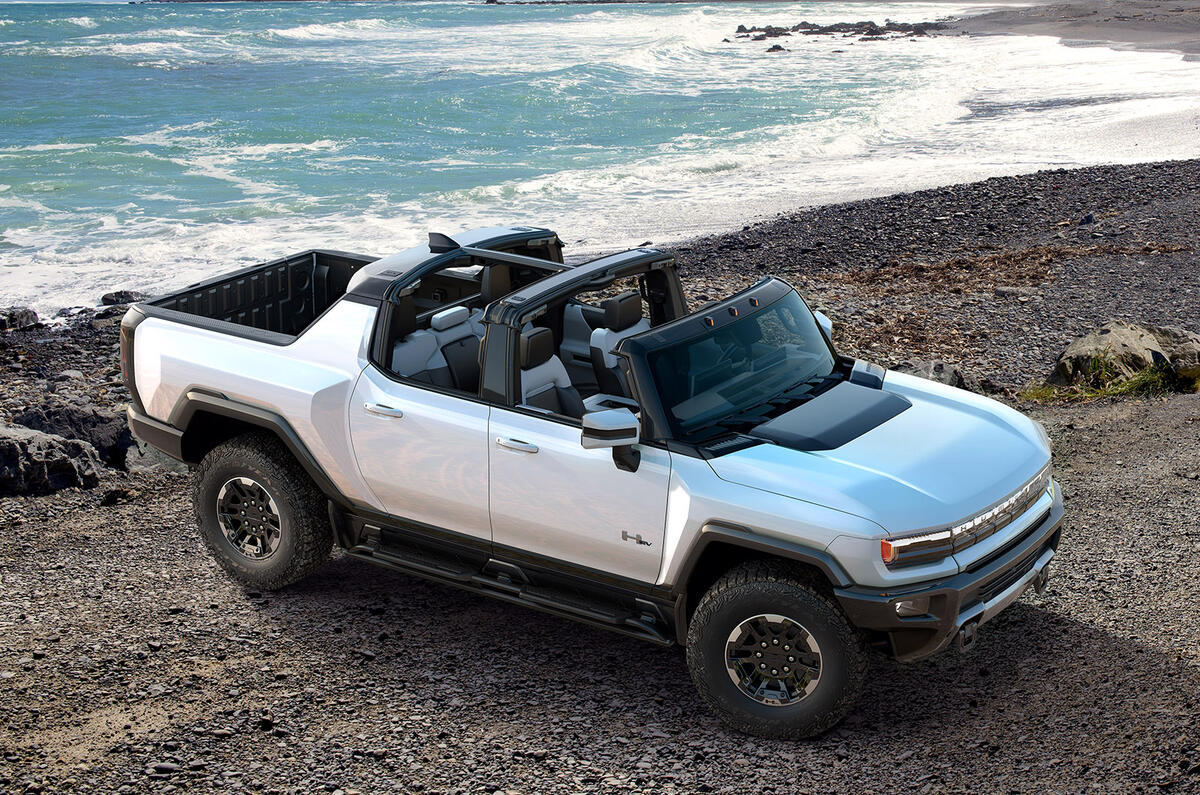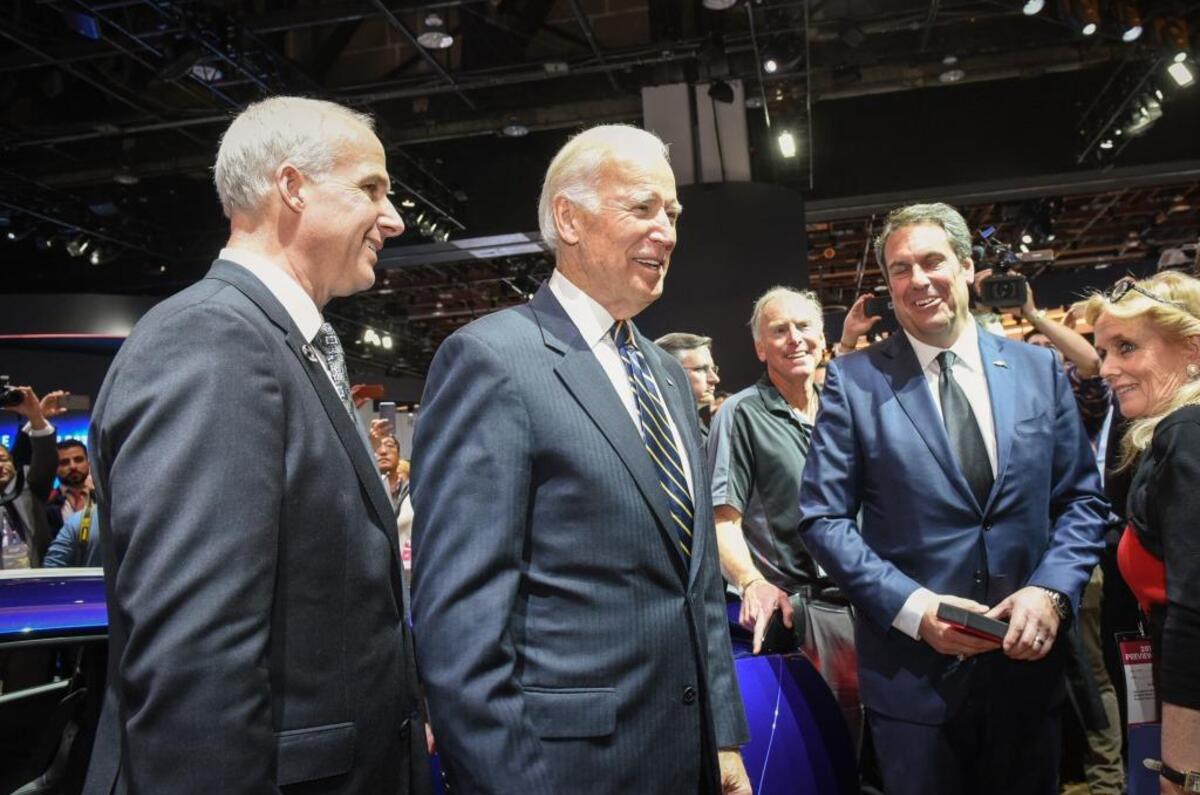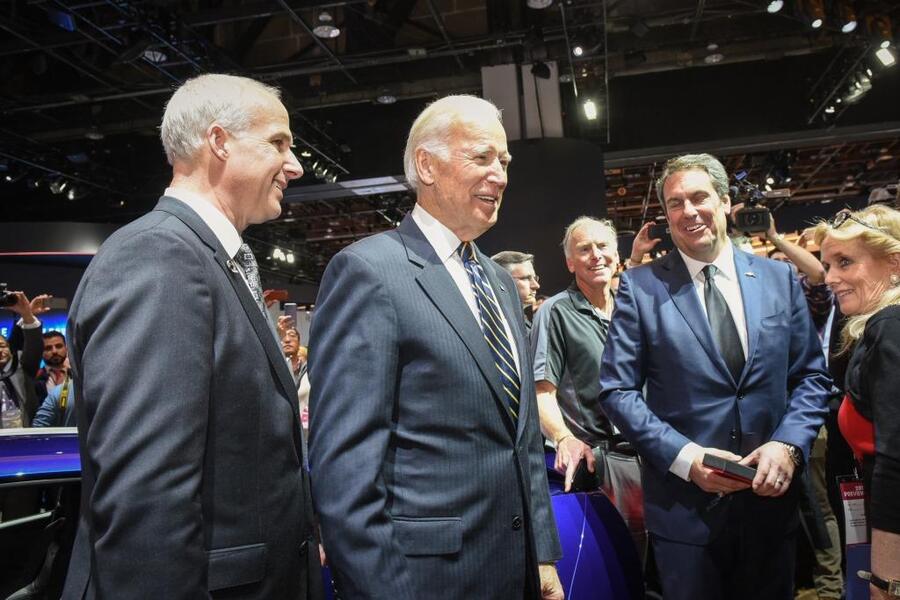Donald Trump may not like it, but Joe Biden is set to be inaugurated as the 45th president of the United States of America on 20 January.
The change in occupant at the White House will lead to a major shift in the country’s environmental policies – and is already having an impact in accelerating the car industry’s shift to electrification. General Motors (GM) recently made a series of announcements outlining aggressive plans to become a market leader in electric vehicles, with a target for 40% of its US sales to be electrified by 2025. It recently revived the Hummer brand with an electric off-roader, while Chevrolet offers the long-running Bolt hatchback.
All this has coincided with another shift that highlights how the US car industry is likely to shift once Democrat Biden is in power, with GM also recently saying it will switch sides in an ongoing legal battle over fuel economy standards, signalling that it will now support policies to promote zero-emissions vehicles.
Legal row over national fuel economy standards
While governments in the UK, Europe and China have been aggressively pushing towards EVs to reduce carbon emissions, recent US policy – influenced in part by the country’s influential oil industry – has moved in the other direction.
During his presidency, Trump and his Republican party have been active in rolling back regulations on the fuel efficiency of vehicles and in promoting the continued use of petrol engines. In March this year, Trump scrapped rules introduced by his Democrat predecessor, Barack Obama, that required car makers to reach a fleet average fuel economy of 54 US MPG (64.85 metric MPG) by 2025, replacing that with a standard of 40 US MPG (48 metric MPG).
The Trump administration’s policy prompted the state of California, a Democratic Party stronghold, to introduce its own fuel economy standards, which it was allowed to do under a waiver previously agreed with the US government. California – which has separately announced a plan to ban the sales of combustion engined-vehicles by 2035 – agreed with BMW, Ford, Honda and Volkswagen to reach a fleet average of 51 US MPG (61.25 metric MPG) by 2026.
With other states set to follow California’s lead, the Trump administration rolled back the state’s waiver, and several groups launched federal court cases to introduce a single national average fuel economy.
One of those lawsuits was backed by Fiat Chrysler Automobiles, GM, Nissan and Toyota. Those manufacturers argued that it was about achieving a single standard, rather than specifically supporting the laxer fuel economy targets.













Join the debate
Add your comment
Joe Biden will be the 46th president. Glaring mistake there Autocar.
Trump is actually the first president in 40 years not to start any wars
This premise of this entire article is false. Biden plans this, Biden plans that...it doesn't matter because he didn't win the election. If the establishment politicians in both parties allow him to be president, despite losing by a landslide, he won't be able to govern at all or get anything done because he is an illegitimate president.
Just what we needed to hear, Trump went out of his way to be controversial, in all the things I've seen, read, none have praised him, Biden can't do any worse, this statement is beneficial.
Honourable but will always be behind musk on this subject.